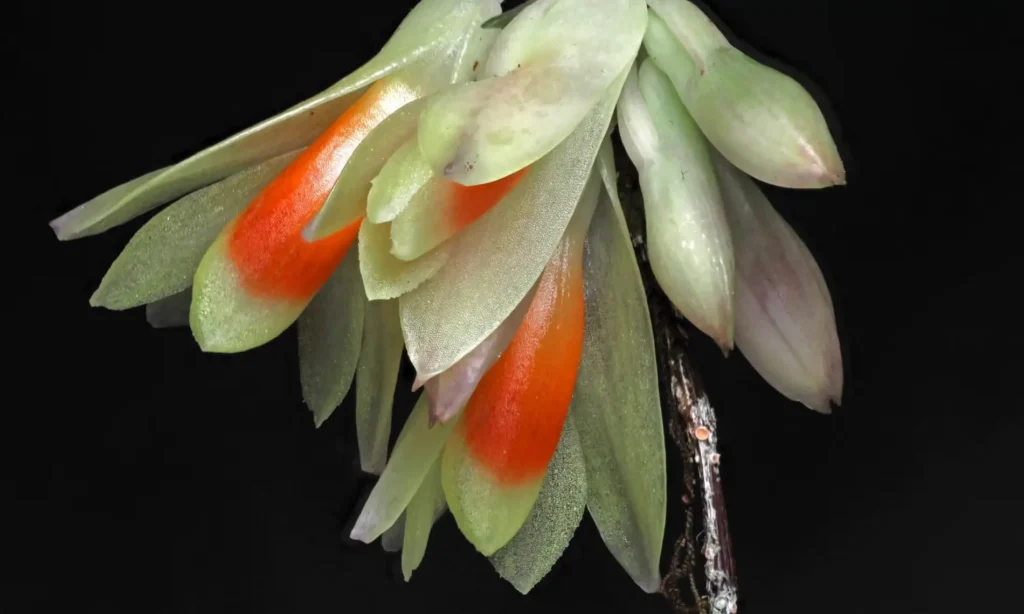In 2024, scientists identified 172 new plant and fungal species, including a ‘toadstool with teeth’ and a ‘ghostly palm,’ underscoring the planet’s rich biodiversity and the urgency of conservation efforts.
Key Points at a Glance:
- Diverse Discoveries: New species range from a marzipan-scented vine to a non-photosynthesizing flower, highlighting nature’s variety.
- Global Findings: Species were found worldwide, from England’s woodlands to Guinea’s sandstone cliffs and Indonesia’s forests.
- Conservation Concerns: Many newly identified species face immediate threats from human activities like deforestation and industrial development.
- Scientific Significance: Discovering new species enhances understanding of ecosystems and their potential benefits to humanity.
Among the remarkable discoveries is Russula neopascua, a toadstool distinguished by tooth-like structures beneath its cap. This unique fungus adds to the diversity of known mushroom species and offers insights into fungal evolution.
Another notable find is a ‘ghostly palm,’ a pale, almost translucent plant species discovered in the forests of Indonesia. Its ethereal appearance and unique adaptations contribute to the understanding of plant diversity in tropical ecosystems.
These discoveries are the result of collaborative efforts by scientists from the Royal Botanic Gardens, Kew, and international partners. However, the rapid pace of habitat destruction poses significant challenges. Many of these newly identified species are already at risk of extinction due to activities such as cement manufacturing, cinnamon farming, and timber plantations.

The identification of new species is not merely an academic exercise; it has practical implications. Plants and fungi play crucial roles in ecosystems and have potential applications in medicine, agriculture, and industry. For instance, certain fungi are being researched for their ability to break down plastics, offering potential solutions to environmental pollution.
Despite the known 400,000 plant species, scientists estimate that an additional 100,000 remain unidentified. With approximately 2,500 new plant and 2,500 new fungi species named each year, the race is on to document Earth’s biodiversity before it is irreversibly lost.
These discoveries underscore the importance of conservation efforts and the need for sustainable practices to protect the planet’s rich biological heritage. Preserving these species ensures the stability of ecosystems and the continuation of natural resources that humanity relies upon.